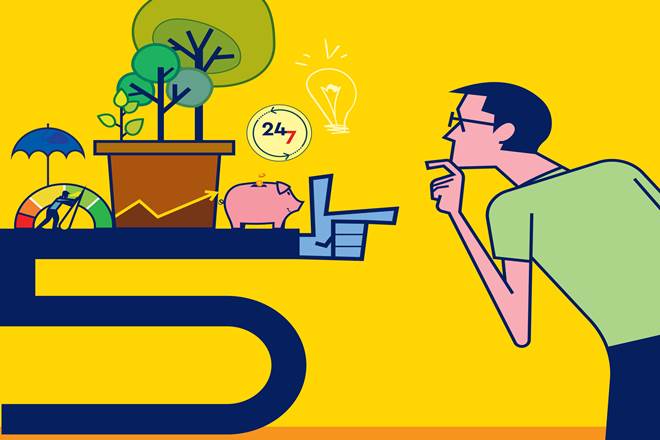Making the right decision is crucial to success in personal finance. Do you know that the decisions that you had taken towards the betterment of your personal finances in the past may not be suitable in the present situation? Or, that the decision you take now may not remain ideal in the future? For example, fixed deposit rates were in the double digits in the last decade, and you would have invested in them. Now, the rates are low and you may be looking for alternatives. And in the future, the rates may pick up again, forcing you to change track again. Such dilemmas may trouble you in 2020 as well. So let us look at a few suggestions that will help you make clear-minded decisions this year.
Investing: Equity vs debt
When it comes to investing in financial instruments, there are broadly two popular options: equity and debt-oriented investments. In 2020, you should pick your investments with extreme care and in line with your financial goals. In 2019, equity investments, especially mid-cap and small-cap stocks and mutual funds, continued to have a bad run, even as select large-cap investments did well. On the other hand, several debt investments also failed to perform to expectations. There was widespread volatility.
Therefore, in 2020, stick to your goals, assess your risk appetite, and for very long-term goals—say, with a 10-20 year horizon—you may invest in mid-cap funds through the SIP mode. For short-term goals, invest in short-term debt funds. If you are close to retirement, avoid high exposure to equity. If you have just started a career or you are in your 20s or 30s, you can invest appropriately in equity. If you are in your 40s or early 50s, you can adopt a more balanced investment approach.
Spending: Cash vs non-cash payments
From January 1, NEFT transactions will attract no charges in addition to being available 24×7. Use these options, as well as UPI, wallets, IMPS and RTGS for your payments needs. One of the key financial pursuits of this government has been to discourage the use of cash and promote digital transactions for better tax compliance and transparency. Now, there are several benefits of non-cash transactions. You can get reward points, attractive discounts and deals. Plastic money is easy to carry and relatively secure. So, in 2020, exploit the rewards of digital transactions.
Insurance: Term plan vs traditional policy
In India, people often dump life insurance, which is a long-term instrument, in their need for quick liquidity. This needs to stop. Don’t pin your liquidity needs on your life insurance policy. Mixing insurance with investments can be detrimental to both your returns as well as coverage. Traditional life insurance policies combine investments and risk cover. However, their returns are low and they lack liquidity. Term policies, on the other hand, are plain vanilla insurance products that offer only risk cover and added benefits. So their premiums are low and you can buy large covers without straining your finances. In 2020, if you want to buy life insurance and make an investment, select a term policy for your insurance needs and invest in a goal-appropriate instrument such as PPF, mutual funds, or ELSS for their high return potential as well as tax-saving benefits.
Loans: secured vs unsecured
Last year was a hard one for borrowers. Defaults were widespread. Secured loans carry low interest rates, and it helps if you have a low credit score, and is especially useful for long-term and big-ticket borrowing for requirements such as property purchase. Unsecured loans are suitable for borrowers who need a quick loan, have a good credit score, don’t have a security to pledge to the lender, who can repay the loan over the short term, and can afford a comparatively higher interest rate. Taking the right loan will help you keep to your repayment plan and avoid any painful defaults in 2020.
Financial goals: Short-term vs long-term
Be very clear about why you invest. This will save you from troubles down the line. Goals can be short or long-term. Goals are also high or low-priority. Having this clarity will help you divert your money to the right investment instruments to achieve your goals. It will also keep you from short-term cyclic panic that grips financial markets periodically.
The writer is CEO, BankBazaar.com

